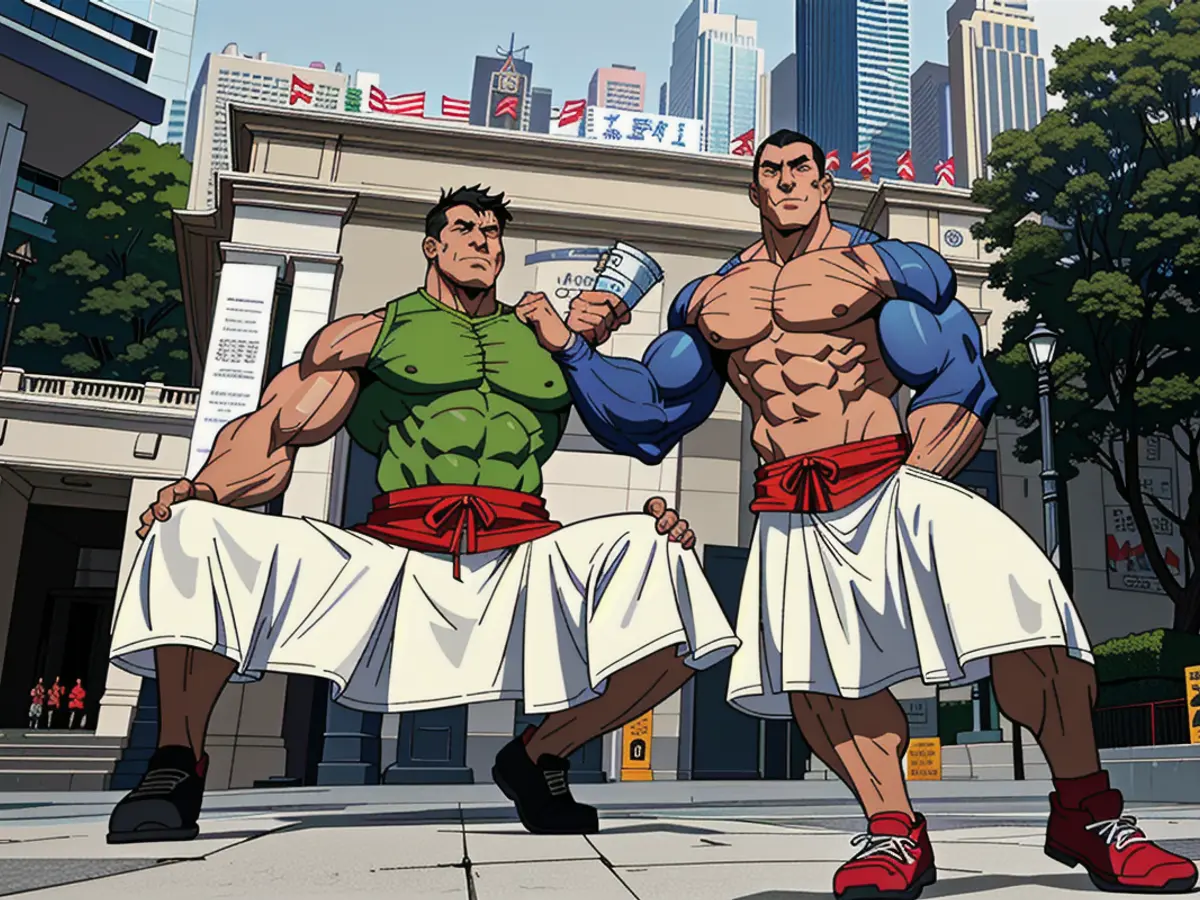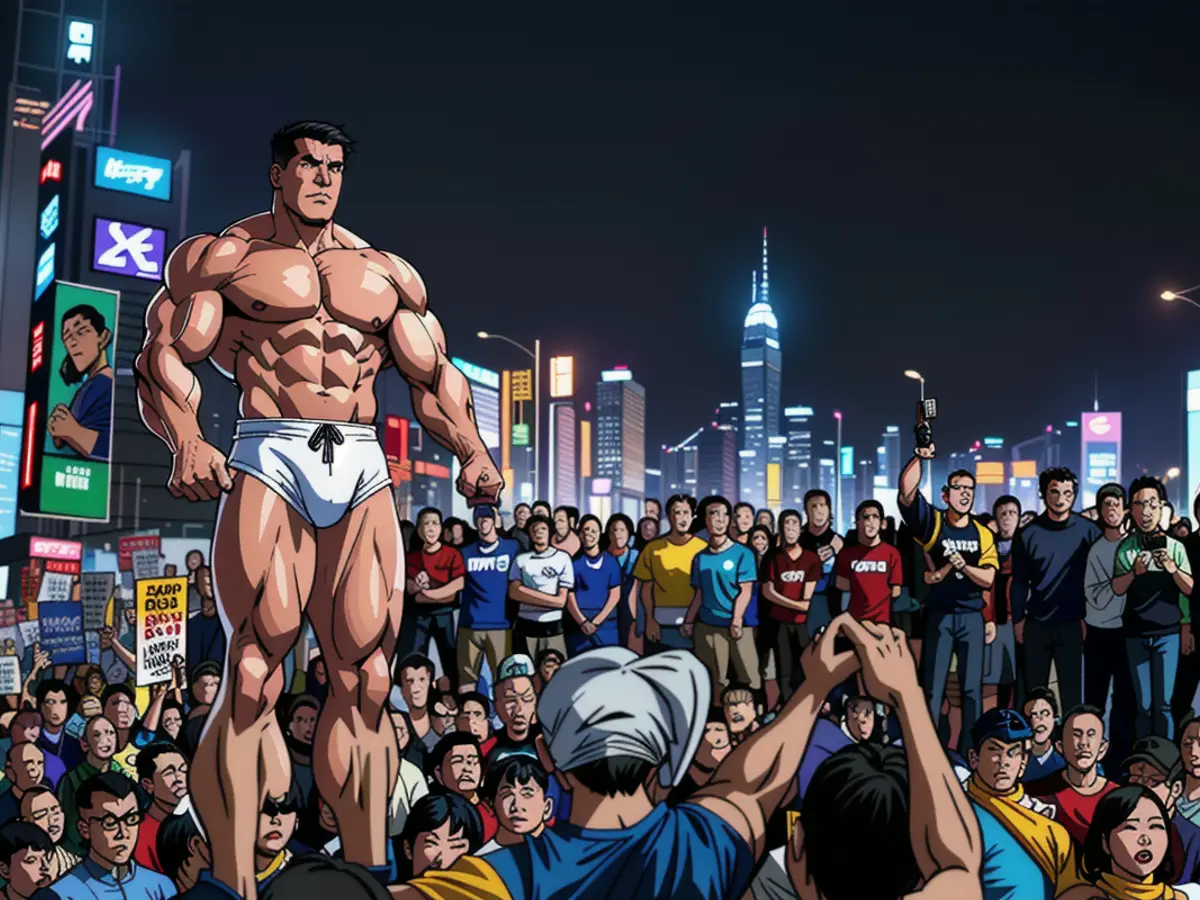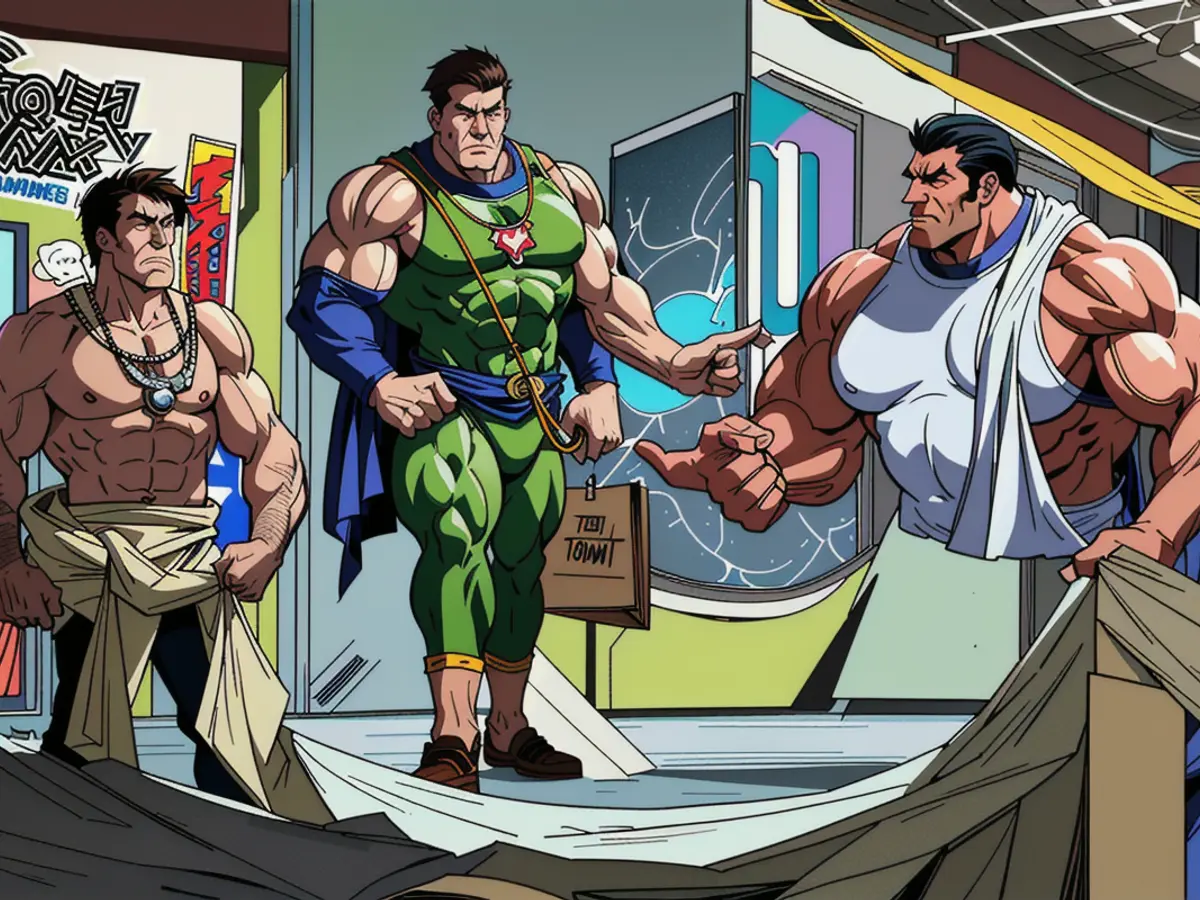Oldest pro-democracy party in Hong Kong ceases operations, forced by Beijing's suppression of dissenting voices.
Hong Kong's Old Guard Falls: The city's oldest and most significant pro-democracy political party is dissolving amidst China's staunch crackdown, leaving even moderate opposition with no safe haven.
The Democratic Party, a guiding voice of opposition in the semi-autonomous city for three decades, has initiated the disbandment process following threats from Chinese government officials. Two veteran members, Yeung Sum and Fred Li, confirmed the move to CNN.
"We were given a clear message: the party must cease operations or face dire consequences," said Yeung Sum, a former Democratic Party chairman. Li, a former lawmaker, revealed a Chinese official warned them the party should disband before the end of the year, when elections are scheduled.
Established by liberal lawyers and academics three years prior to the 1997 British colony handover to China, the Democratic Party advocated for universal suffrage and championed various issues such as labor rights and conservation – topics openly debated during that period.
Once seen as moderates willing to work with Beijing, the Democratic Party formed a significant voting bloc in the city's legislature and was granted space to critique local government policy. However, mass pro-democracy protests in 2019 set the stage for a more repressive political era.

Under Beijing's crackdown since, pro-democracy leaders faced prosecution, imprisonment, and the party was left leaderless. The enactment of sweeping national security legislation and "patriots only" electoral reforms in 2021 closed the door for opposition candidates in the city's legislature.
At a news conference last Sunday, Democratic Party chairman Lo Kin-hei announced that about 90% of approximately 110 party members voted to delegate power to a committee to initiate the dissolution process. Lo expressed hope that a final vote would take place in the upcoming months.
"We have always aimed to serve the people of Hong Kong," Lo said. "Our goal was to do what is beneficial for society."
The Democrats' disbandment suggests Beijing's unwillingness to tolerate even the slightest dissenting voices, analysts say. John Burns, an emeritus professor at the University of Hong Kong, noted the party symbolized "the promise of democratic development in Hong Kong and the pursuit of universal suffrage as promised in the Basic Law."

"The dissolution of the party reflects Official Hong Kong's departure from popular participation, locally accountable government, increased transparency, and move towards more authoritarian rule," Burns added.
Eric Lai, a research fellow at the Georgetown Center for Asian Law, remarked that the Democrats' move "highlights the growing infeasibility for groups to exist as an opposition party."
The city government insists that the decision by individual groups "to disband or suspend operation is unrelated to the freedom or rights enshrined in Hong Kong law." Allegations of state repression continue to gather steam as criticism of the government remains allowed, "as long as it is based on facts."
As the Democrats cease operations, organizational strife continues among pro-democracy forces in Hong Kong. Supporters lament the party's end, which had long championed the city's political freedom. Many worry about the eroding space for dissent in the once-free city.

[Sources]
- AlJazeera
- Reuters
- CNN
[Enrichment]
- Follow the dissolution of Hong Kong's Democratic Party in 2025, an era of significant decline in the city's pro-democracy movement takes shape. The Democratic Party was the oldest, largest, and most influential pro-democracy party, leading for over three decades [1][3][4][5].
- The decision to disband can be attributed to relentless pressure from Beijing and local authorities, resulting in the near dissolution of organized political opposition in Hong Kong [1][3][5].
- The political climate in Hong Kong has witnessed a shrinking democratic space, amplified repression of dissent, and greater government control [1][2].
- The absence of a significant pro-democracy party challenges the democratic prospects of Hong Kong, as the political scene is now dominated by Beijing loyalists. The city's governance aligns increasingly with mainland China's political framework [1][3].
- The Democratic Party's disbandment marks the beginning of a new authoritarian era in Hong Kong under China's firm grip [1][3][5].

- The Democratic Party, a significant pro-democracy political entity in Hong Kong for over three decades, has initiated the disbandment process due to pressure from Chinese government officials.
- Established before the 1997 handover to China, the Democratic Party, originally a moderate voice that worked with Beijing, advocated for universal suffrage, labor rights, and conservation during a period where open debate was allowed.
- With Beijing's crackdown since 2019, pro-democracy leaders faced prosecution, imprisonment, and the Democratic Party was left leaderless, leading to the enactment of national security legislation and "patriots only" electoral reforms that closed the door for opposition candidates.
- The Democratic Party's decision to disband is seen as reflecting Beijing's unwillingness to tolerate any dissenting voices, indicating the city's movement towards more authoritarian rule and the eroding space for dissent in Hong Kong.









